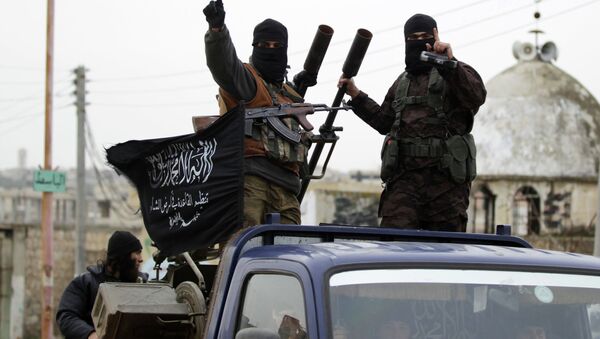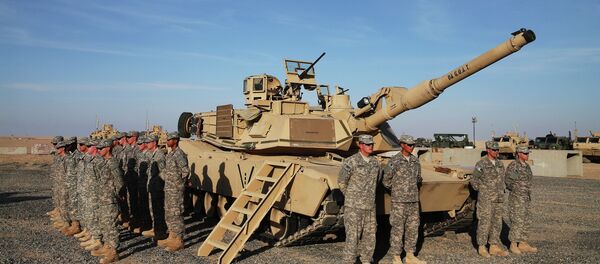US officials still maintain that some rebels do not adhere to radical ideology and are in fact quite moderate in their views, although there is no evidence to support this assertion.
"Distracted by an alphabet soup of various Salafist jihadi groups … and trying to separate 'good terrorists' from 'bad terrorists,' Washington is blindsided by the fact that ultimately they share the same end of establishing a global caliphate under Sharia, only differing in the means and speed of that goal," the former director for China policy at the US Department of Defense noted.
Washington's strategy is also complicated by the fact that several members of the counterterrorism coalition once helped the self-styled Islamic State gain strength and are still tacitly supporting other radical groups in the Middle Easy, she added.
Interesting fact: those rebels fighting in Syria, who receive aid from Riyadh, Doha and Ankara, are not Syrians. Some 95 percent of them are mercenaries, Lin said, citing data released by German intelligence agency, BND.
Russia, China and India see the rise of ISIL as a direct challenge to their security. This prompted Moscow to launch an aerial campaign to tackle Islamic radicals in Syria. The main goal is to prevent them from spreading to Eurasia.
Tackling ISIL is therefore a priority for these countries but it should also be the key objective of the US policy in the Middle East. Assad is not the problem, radical Islam is.
"Given combating IS is the unifier of great powers while Syrian regime change is the divider that allows IS to get stronger, US should recalibrate its Sunni Wahhabi-driven strategy and start working with other legitimate Mideast stakeholders to counter Islamic extremism. Absent this, it may behoove the Eurasian powers outside of US-led coalition to take Kissinger's advice, and begin forging their own coalition via SCO and CSTO to counter terrorism in Syria," Lin concluded.



